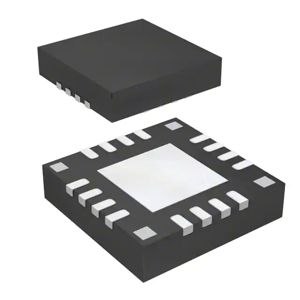
Motion Sensors - Accelerometers
Motion Sensors - Accelerometers: Precision in Motion Detection
Definition:
Motion Sensors - Accelerometers are specialized devices designed to measure acceleration forces, including static (gravity) and dynamic (movement or vibration) forces. These sensors are essential for detecting and analyzing motion in various applications, from consumer electronics to industrial systems. By converting mechanical motion into an electrical signal, accelerometers provide critical data for orientation, tilt, shock, and vibration detection.
Types of Motion Sensors - Accelerometers:
1. MEMS (Micro-Electro-Mechanical Systems) Accelerometers: Compact, low-power sensors widely used in smartphones, wearables, and IoT devices for motion tracking and gesture recognition.
2. Piezoelectric Accelerometers: Ideal for high-frequency vibration monitoring in industrial machinery, automotive testing, and aerospace applications.
3. Capacitive Accelerometers: Known for high accuracy and stability, commonly used in navigation systems, robotics, and medical devices.
4. Piezoresistive Accelerometers: Robust sensors capable of measuring high-impact forces, often applied in automotive crash testing and structural health monitoring.
Buying Recommendations:
When selecting an accelerometer, consider the following factors:
- Measurement Range: Choose a sensor that matches the expected acceleration levels (e.g., 2g for consumer devices vs. 500g for industrial impacts).
- Bandwidth: Ensure the sensor s frequency response aligns with your application (e.g., low-frequency for tilt sensing vs. high-frequency for vibration analysis).
- Output Type: Analog, digital (I2C/SPI), or wireless outputs should suit your system s integration requirements.
- Environmental Durability: For harsh environments, opt for models with robust enclosures and resistance to temperature, humidity, or shock.
Motion Sensors - Accelerometers are pivotal in enabling smart, responsive systems. Whether for innovation in consumer tech or precision in industrial automation, selecting the right accelerometer ensures optimal performance and reliability.
Filter and sort
Categories
MMA6361LT
ACCEL 1.5-6G ANALOG 14LGA
KXR94-2353-FR
ACCELEROMETER 2G SPI 14DFN
LIS202DLTR
ACCEL 2.3-9.2G I2C/SPI 14LGA
MMA1213EG
ACCEL 56.3G ANALOG 16SOIC
LIS2L02AQ3TR
ACCELEROMETER 2-6G ANALOG 44QFN
MMA2202D
ACCEL 56.3G ANALOG 16SOIC
MMA6813BKW
ACCELEROMETER 50G SPI 16QFN
E-LIS3L02AS5TR
ACCELEROMETER 2-6G ANALOG 24SO
AD22286-REEL
ACCEL 70G/35G ANALOG 8CLCC
8101-0160X-120
ACCELEROMETER 160G IEPE
11027661-00
ACCELEROMETER 250G ANALOG
ADXL335CCPZ
ACCELEROMETER 3G ANALOG 16LFCSP
BMA223
ACCEL 2-16G I2C/SPI 12LGA
SCA3000-E02
ACCELEROMETER 3G I2C 18SMD
AD22286-R2
ACCEL 70G/35G ANALOG 8CLCC
MMA2202KEGR2
ACCEL 56.3G ANALOG 16SOIC
MMA621010AEG
ANALOG CIRCUIT, 1 FUNC, PDSO20
MMA6825BKWR2
ACCELEROMETER 100G SPI 16QFN
MMA1250D
ACCELEROMETER 5G ANALOG 16SOIC
MMA2204D
ACCEL 112.5G ANALOG 16SOIC




















